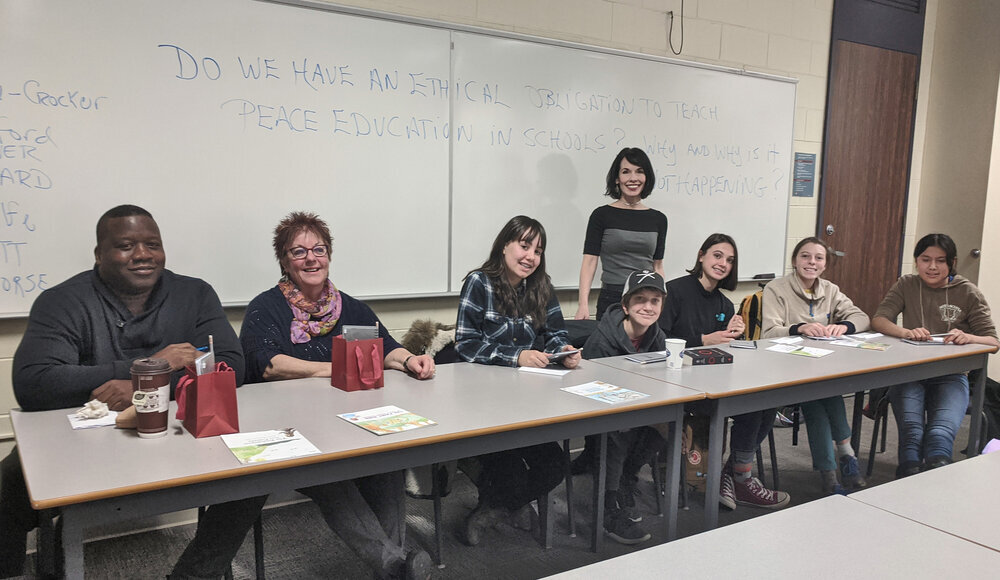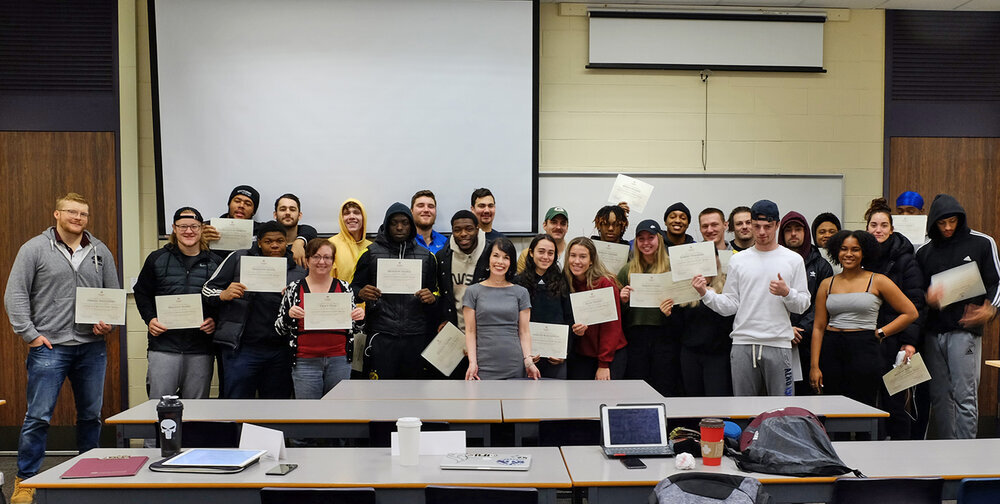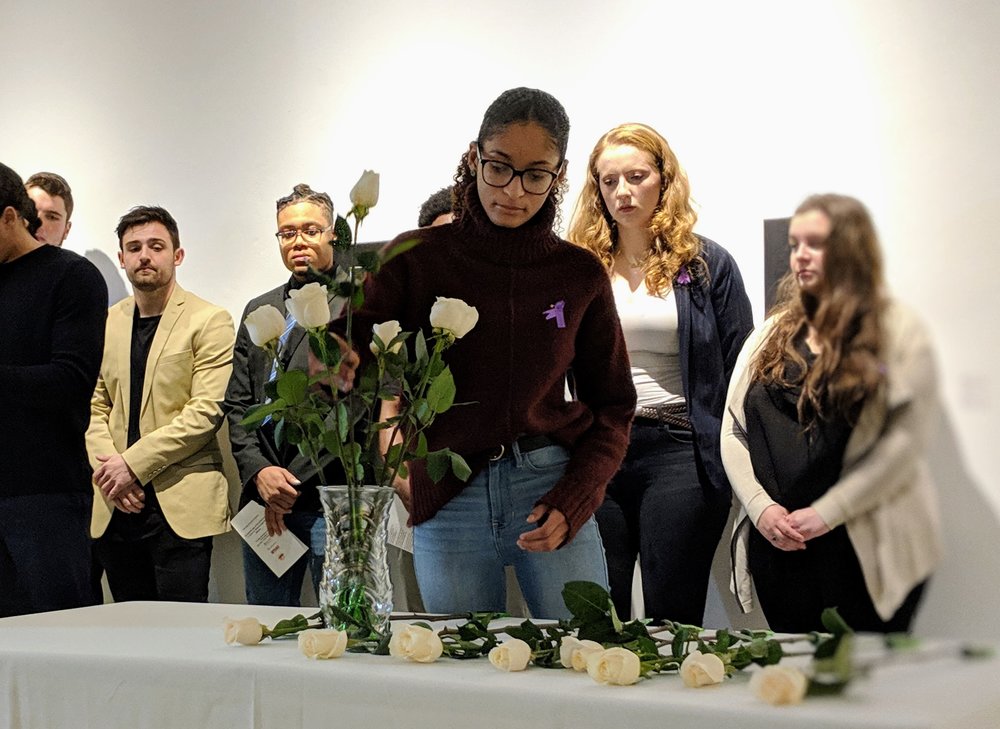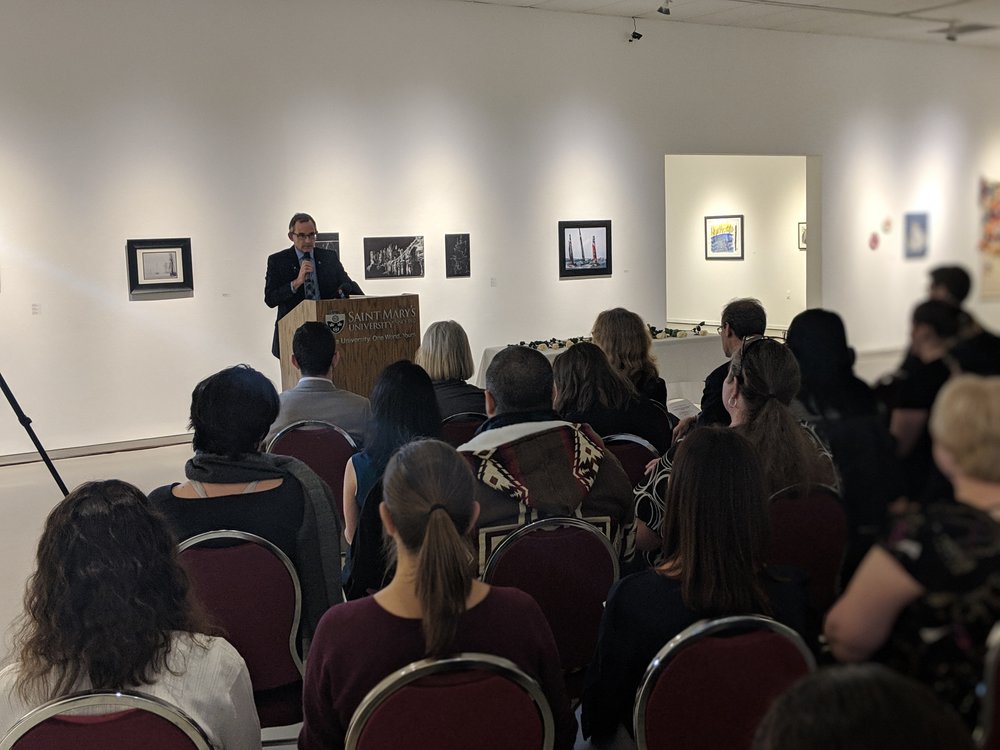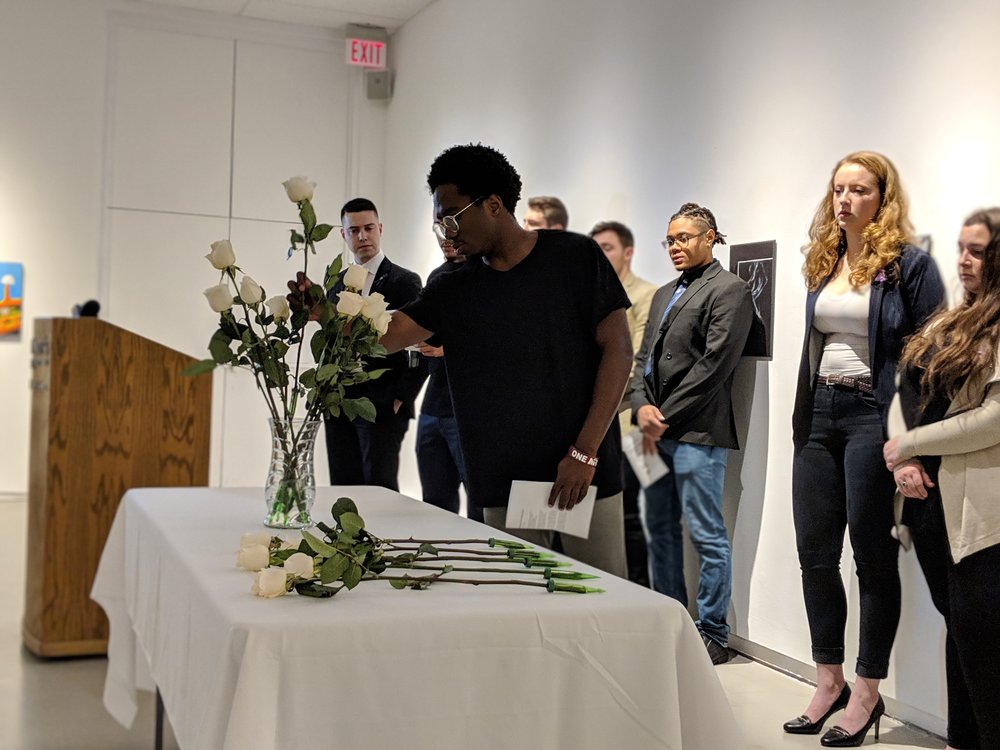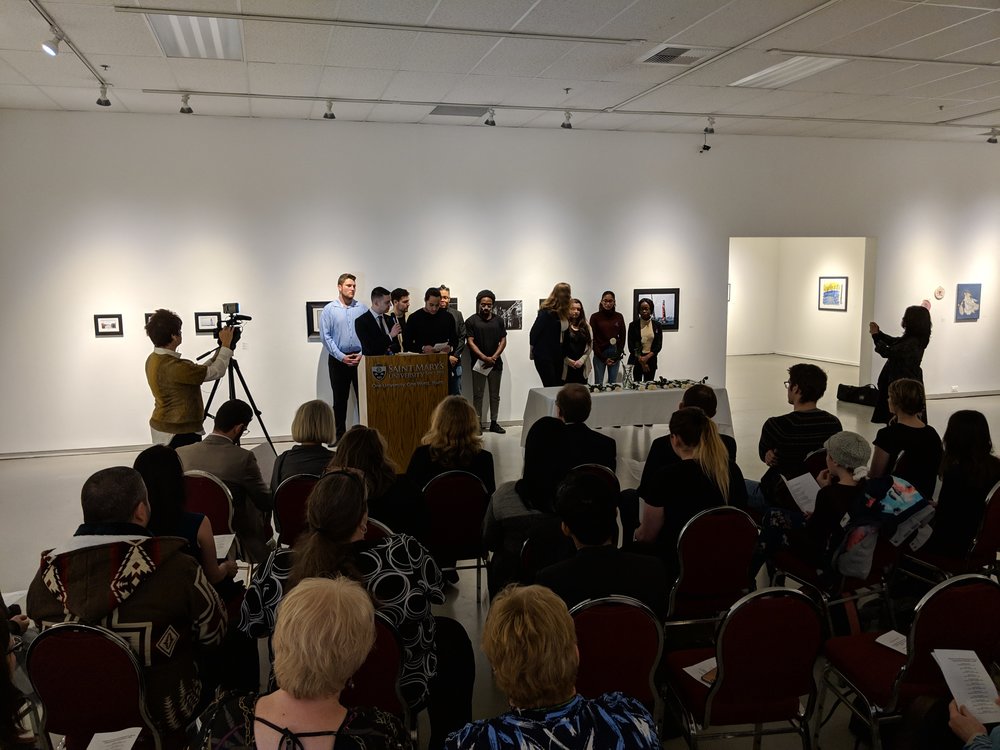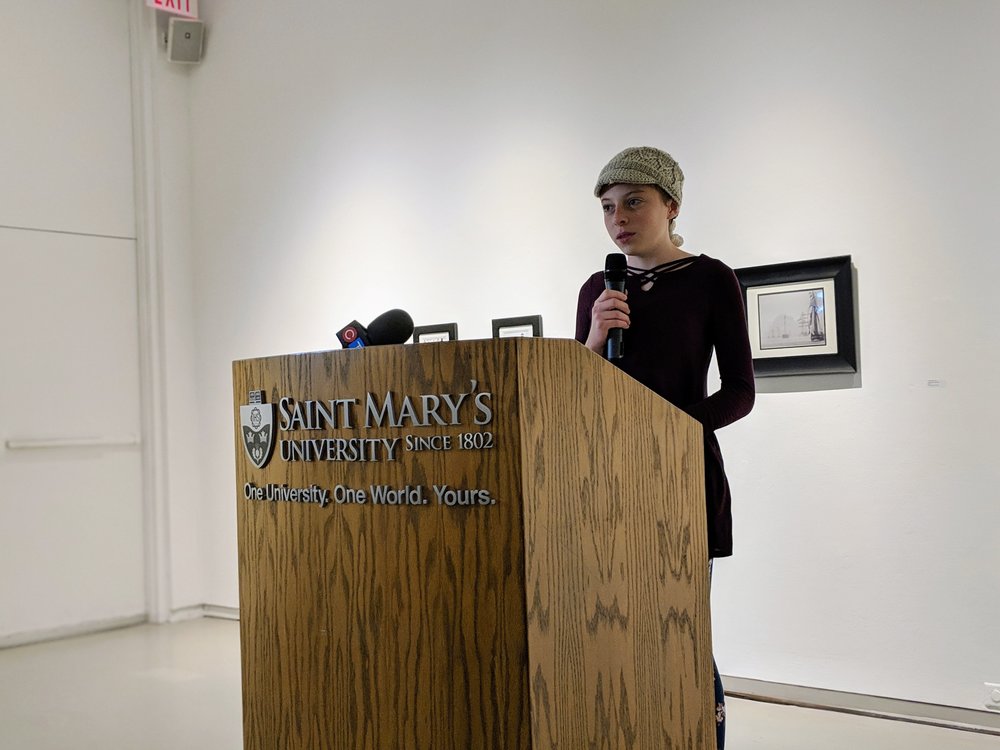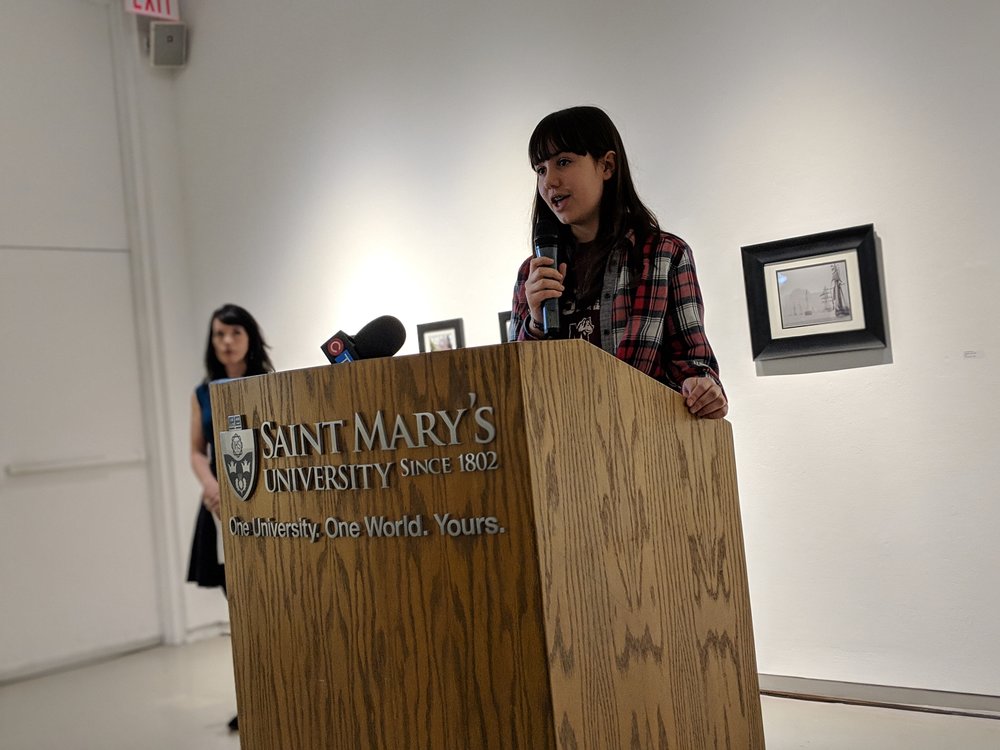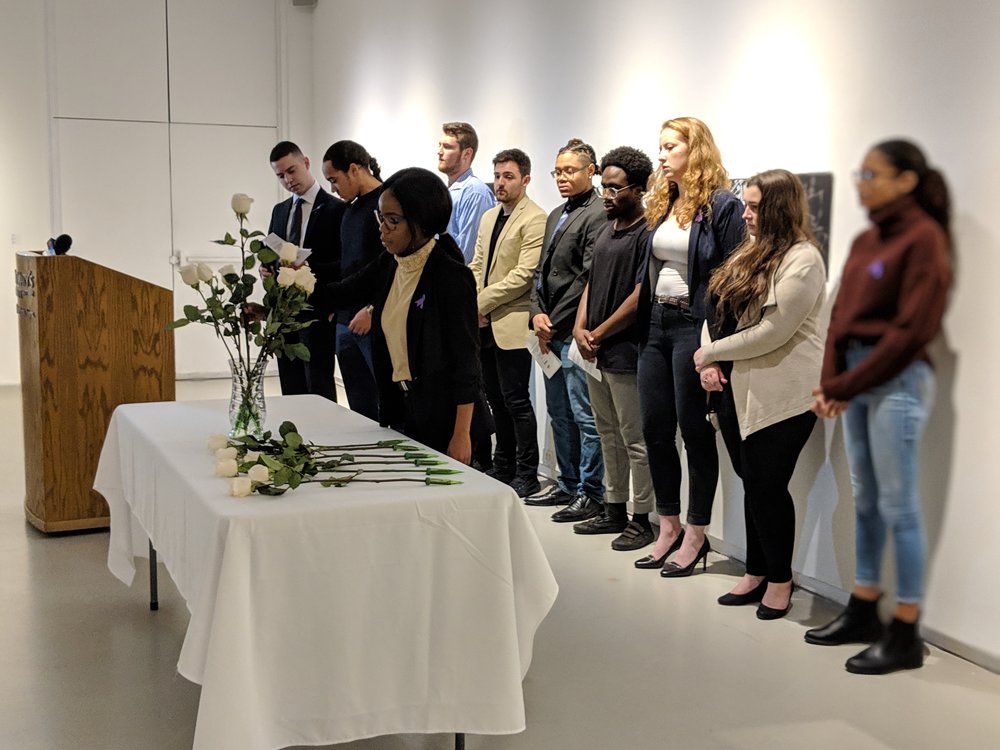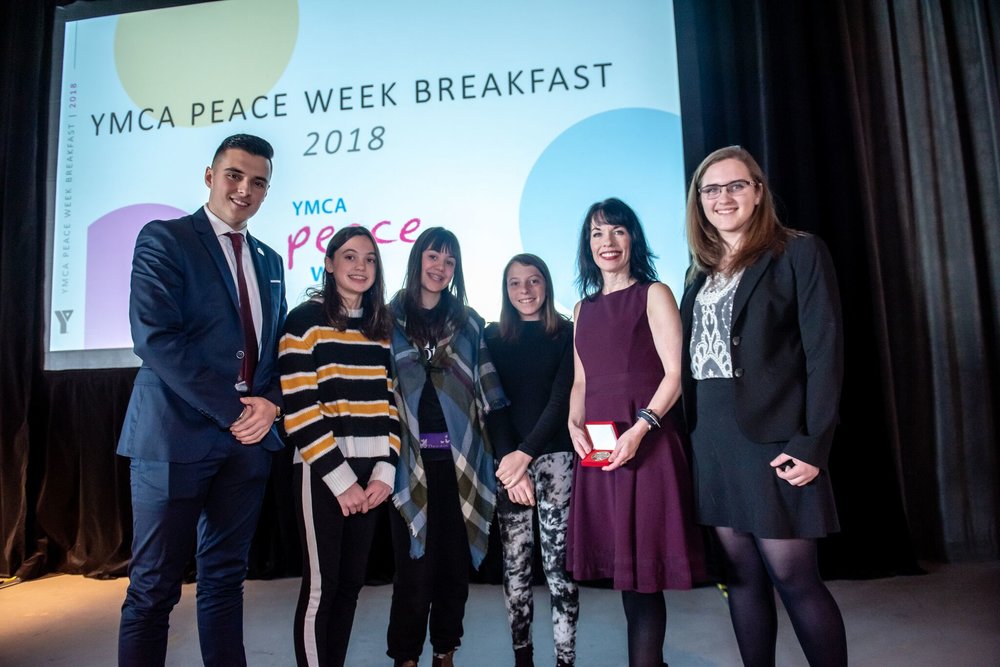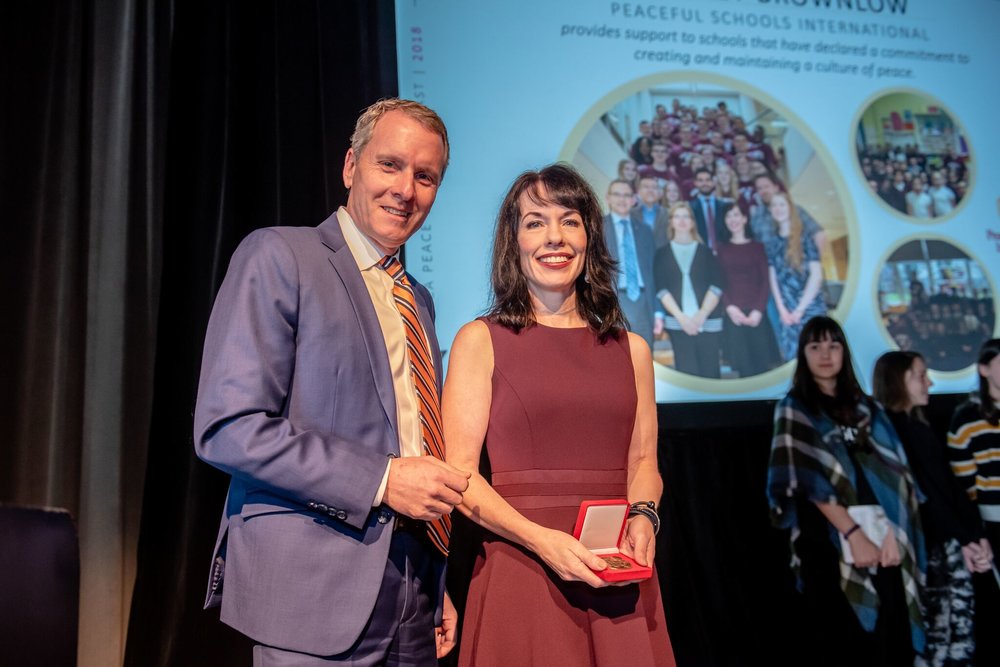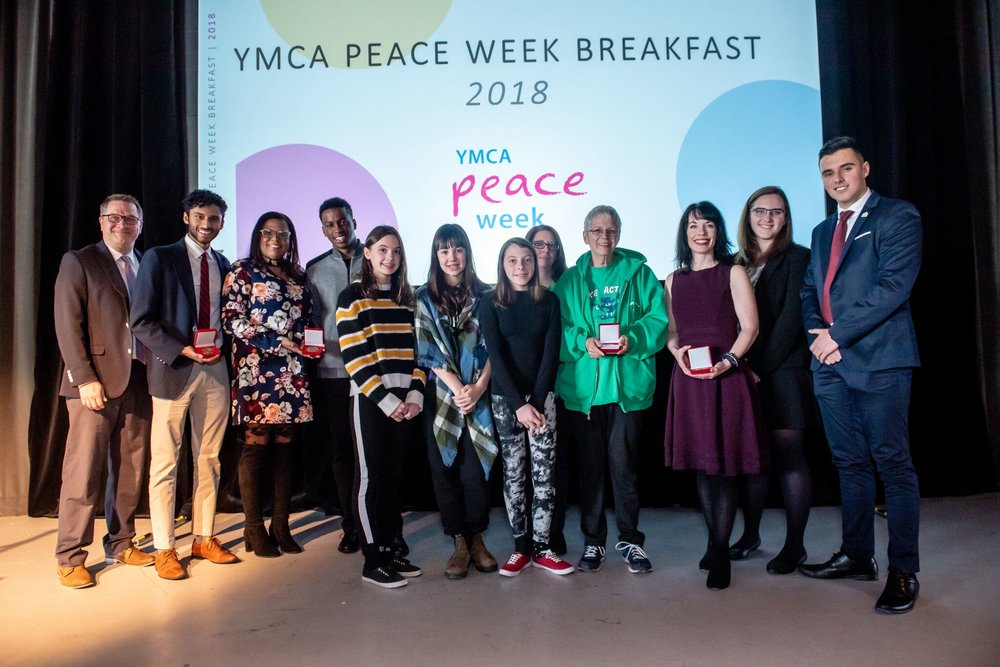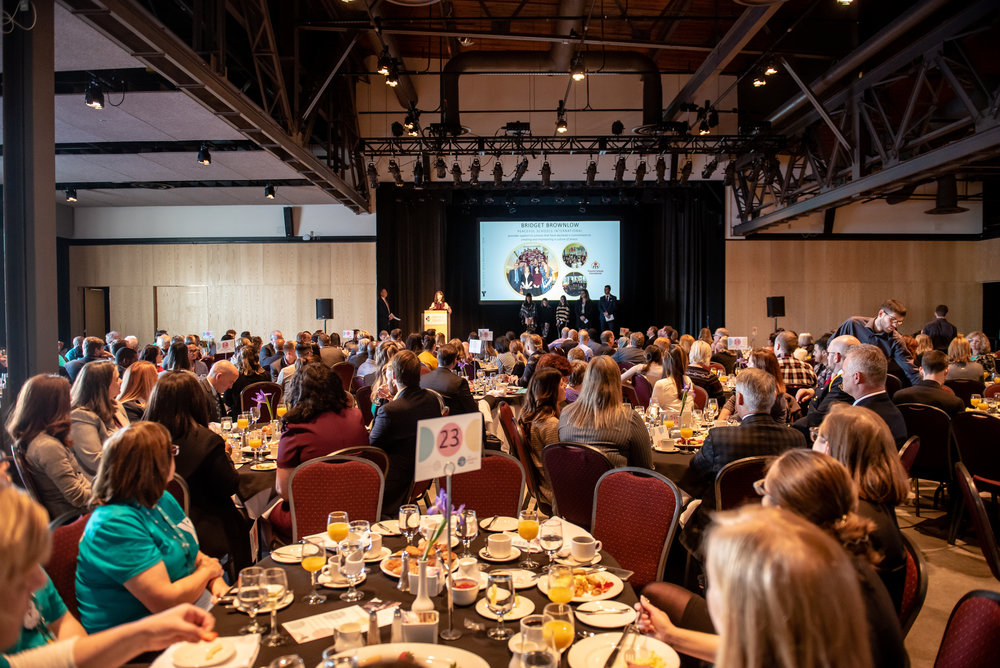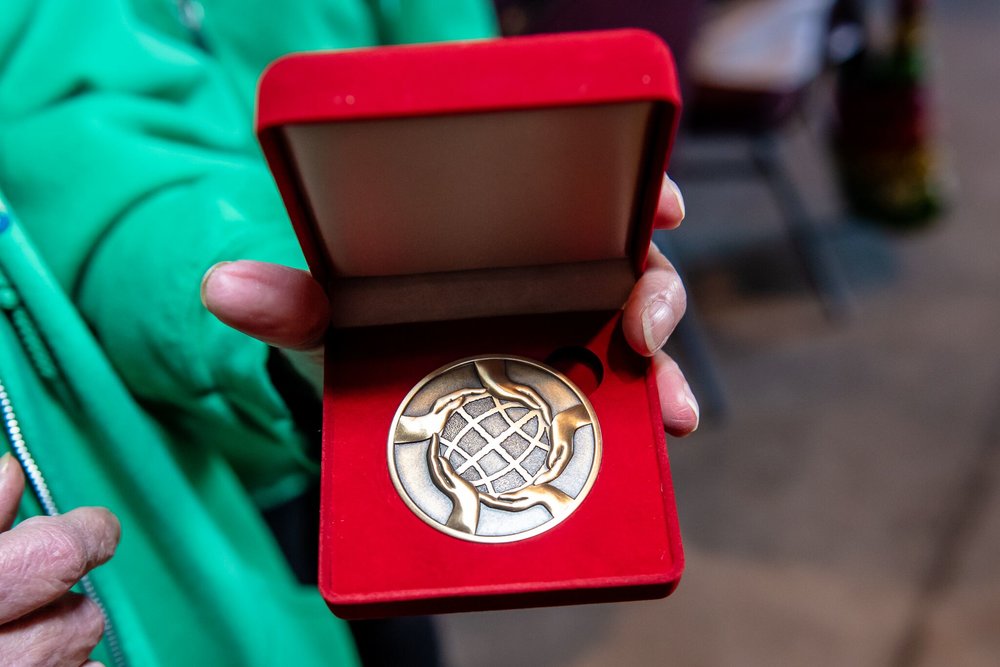Do we have an ethical obligation to engage schools in peace education? This was the guiding question for a panel discussion at Saint Mary’s when educators from Nova Scotia public schools met with Peaceful Schools International’s Youth Consultant Committee to discuss the need for conflict resolution and peace education programs for Nova Scotian youth.
The panel was organized as part of a Faculty of Education course taught by Prof. Bridget Brownlow entitled Peace Education: International Perspectives and Practice, where the 38 students enrolled in this year’s class examine the themes of peace education and conflict resolution in a global context. In addition to their academic studies, students work towards a Certificate in Conflict Resolution, designed to help them develop the perspectives and skills required to navigate and manage interpersonal conflict.
Having spent this semester investigating peace education initiatives around the globe, reflecting on personal experiences of conflict, and building the skills to resolve disputes, students in Prof. Brownlow’s class had the opportunity to exchange ideas with students and educators from local schools. Five members from the Youth Consultant Committee, all of whom attend Oxford School, were joined by Calvin Scott, the African Nova Scotian Student Support worker for Halifax West High School and Heather Morse, a retired principal with the Annapolis Valley Regional School Board to reflect on the need for conflict resolution and peace education.
Calvin Scott suggested peace education could be a powerful tool to support African Nova Scotian students facing discrimination in the public school system. Helping them navigate the daily realities of racism was, he said, “not only an ethical, but a moral obligation.”
Heather Morse, who reflected on her experiences developing elementary school curricula that incorporated many of the principles of peace education, described the challenges of having to compete with the requirements of the core curriculum. Despite the lack of time and resources for peace education, she said the ideas shared by the Youth Consultant Committee were reason for hope. “I am so impressed by the insight and awareness around conflict resolution we heard today, both from the youth committee and from Prof. Brownlow’s class,” she said.
Brendan Kohls, a student in the class, suggested that conflict resolution skills are often dismissed as being “something kids intuitively pick up along the way. But most don’t. These are real skills, and we all need to learn them.” His classmate, Elaine Brickell Sands, reflected that “it’s hard for most people to take that first step. But in this class, we explore ways to build connections among people from different backgrounds, such as race, religion, gender and so on. I’ve learned that active listening and asking open questions are a great way to draw out our commonalities and overcome our differences.”
This panel discussion builds on Saint Mary’s long history of developing expertise in peace education, established chiefly under the leadership of Dr. Hetty van Gurp, the founding director of Peaceful Schools International and an Adjunct Professor in the Faculty of Education. The Halifax-based organization, which supports schools that have made a commitment to “creating and maintaining a culture of peace,” now has more than 200 partner institutions around the world.
Prof. Brownlow, the Conflict Resolution Advisor for Saint Mary’s and an Adjunct Professor in the Faculty of Education, is also the president of Peaceful Schools International. Each year, members of the organization — in partnership with the SMU Conflict Resolution Society — travel to elementary schools around Northern Ireland to facilitate conflict resolution workshops for children affected by sectarian division.
“Working with my students this semester has been such an honour,” said Prof. Brownlow at the end of class. ”A good number of them are varsity athletes with very busy practice and game schedules. Yet they come each week with insightful reflections on how the things we learn in class have an impact on their lives outside the classroom. What more could I ask for?”
Brandon Ihanza, a member of the football team, had the final word. After commenting on how many of his teammates have benefited from developing perspectives on conflict resolution this semester, he said “…so, on behalf of the football team, I’d like to thank you for bringing us all into your class, and for providing us such a positive learning environment.”



